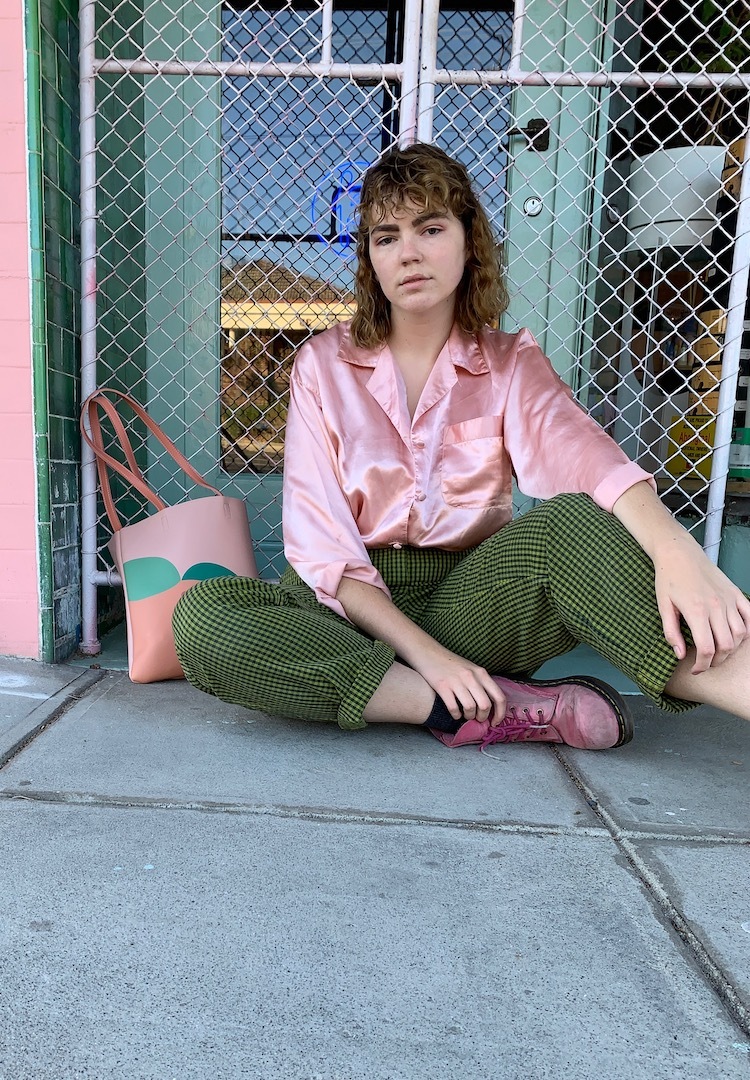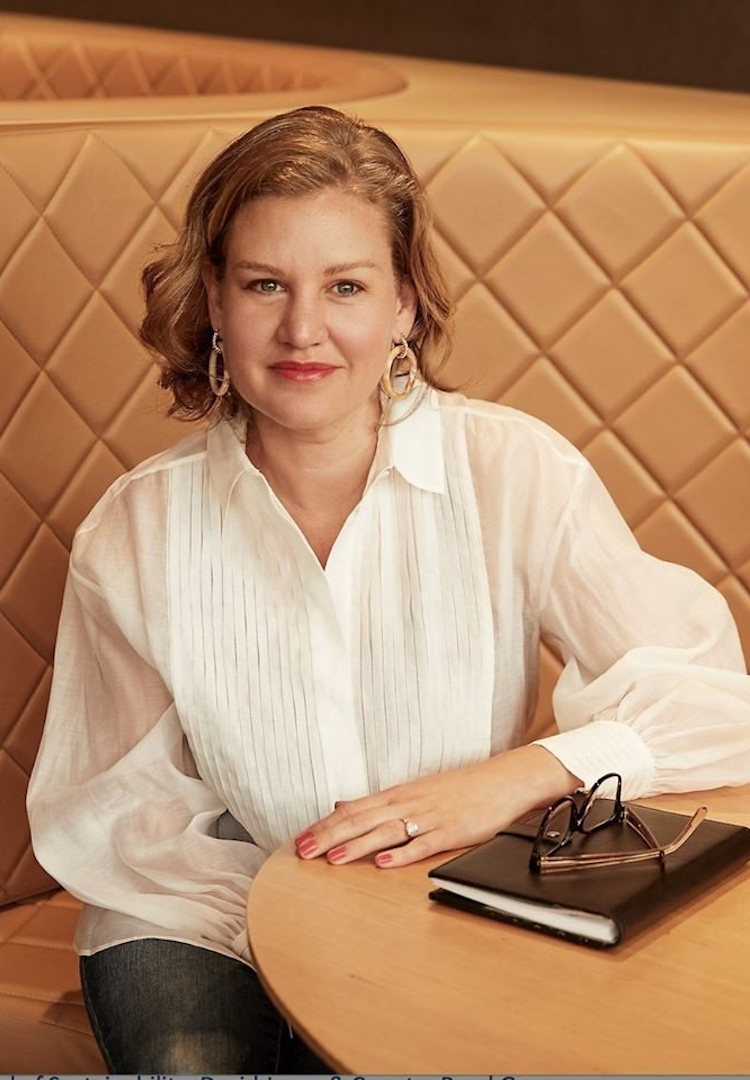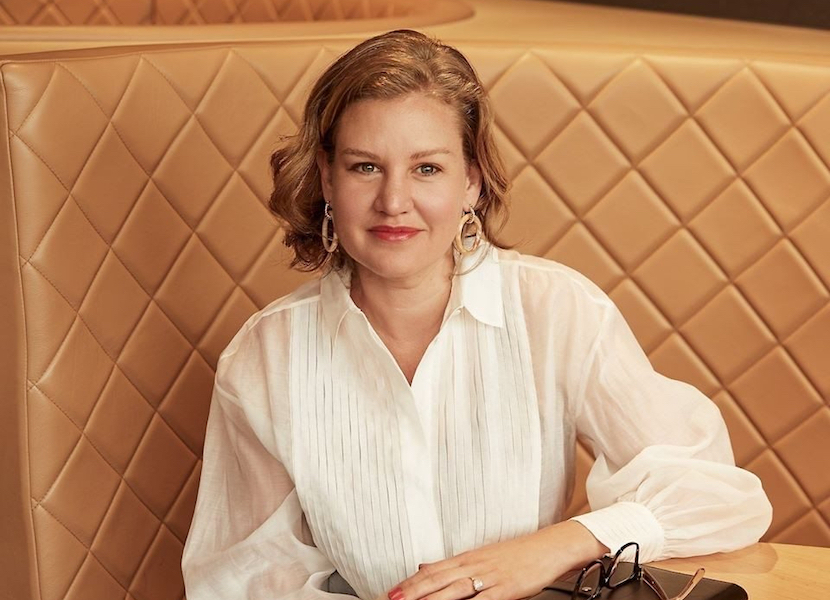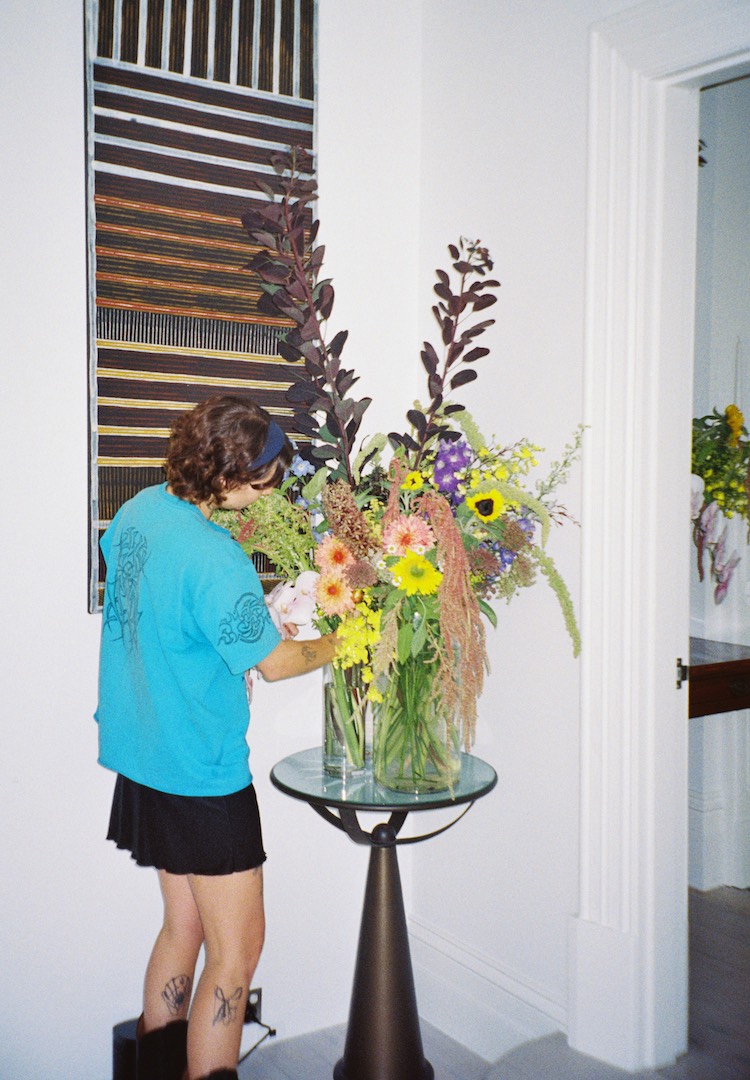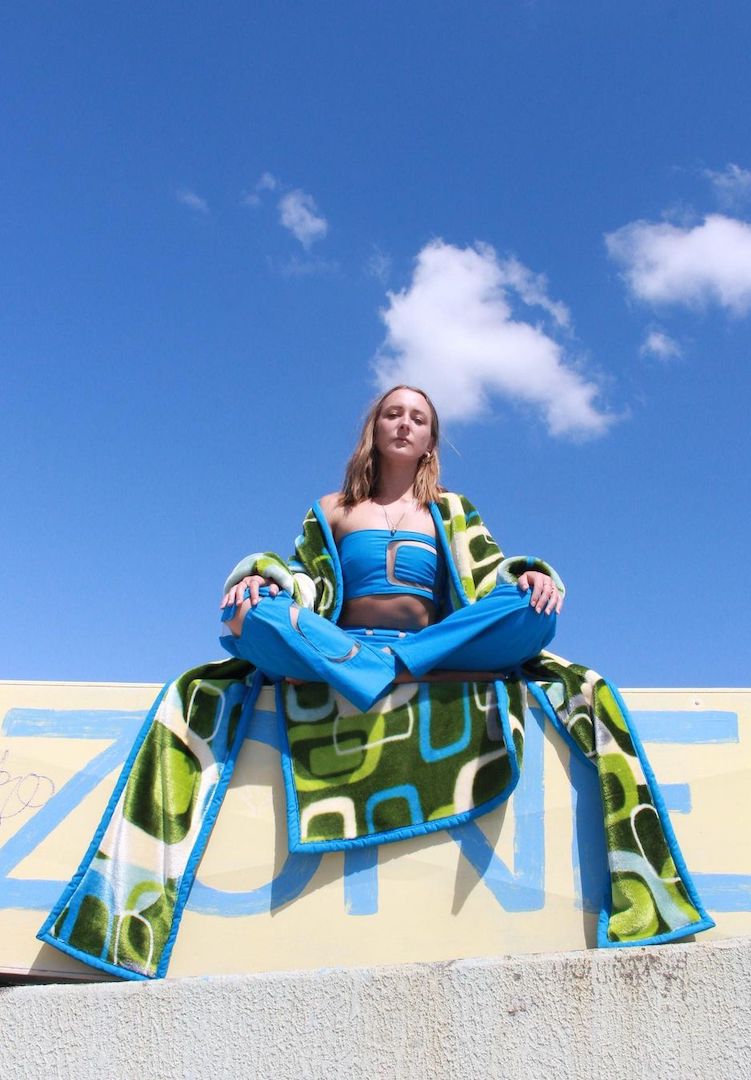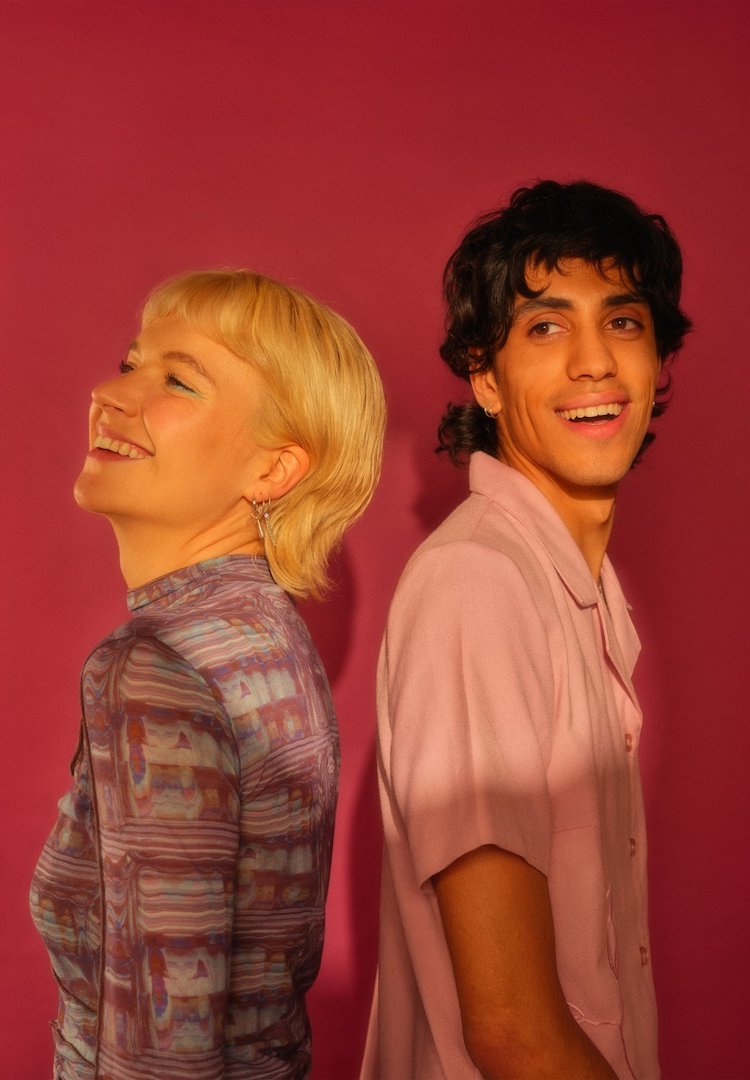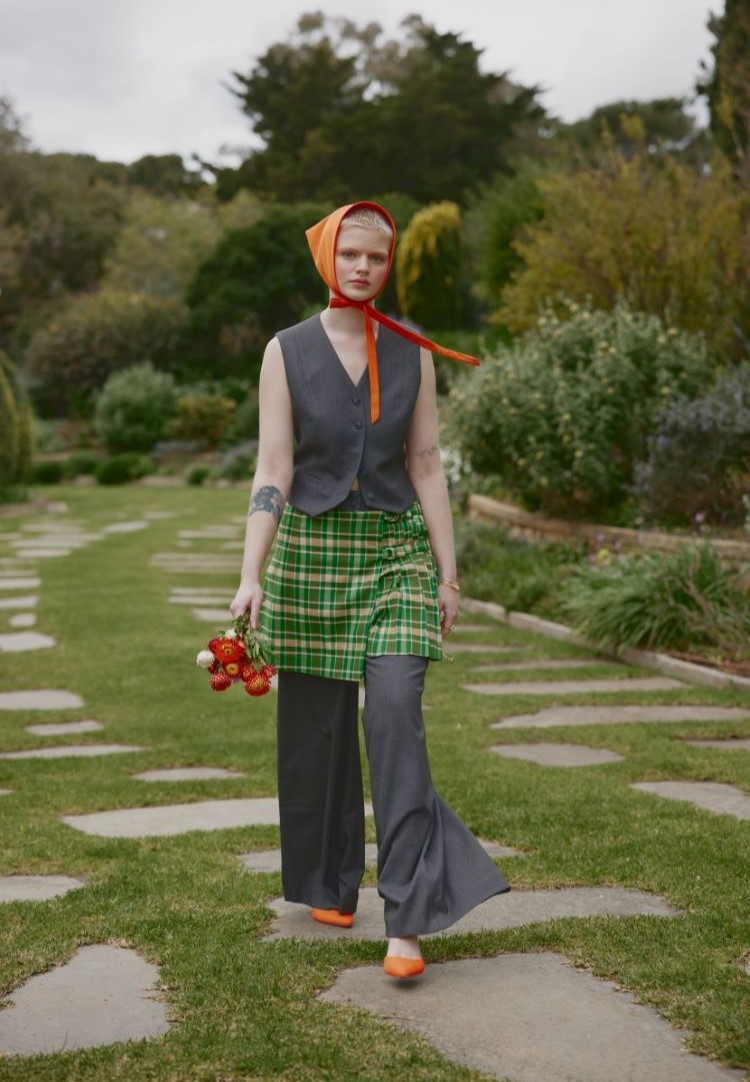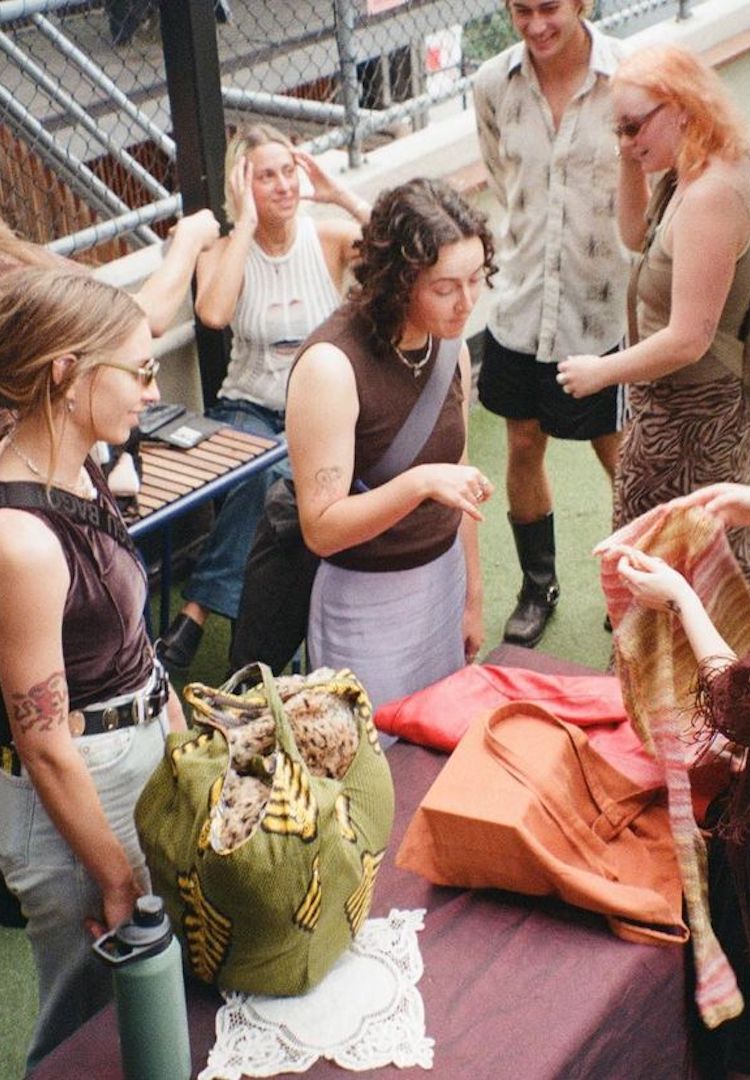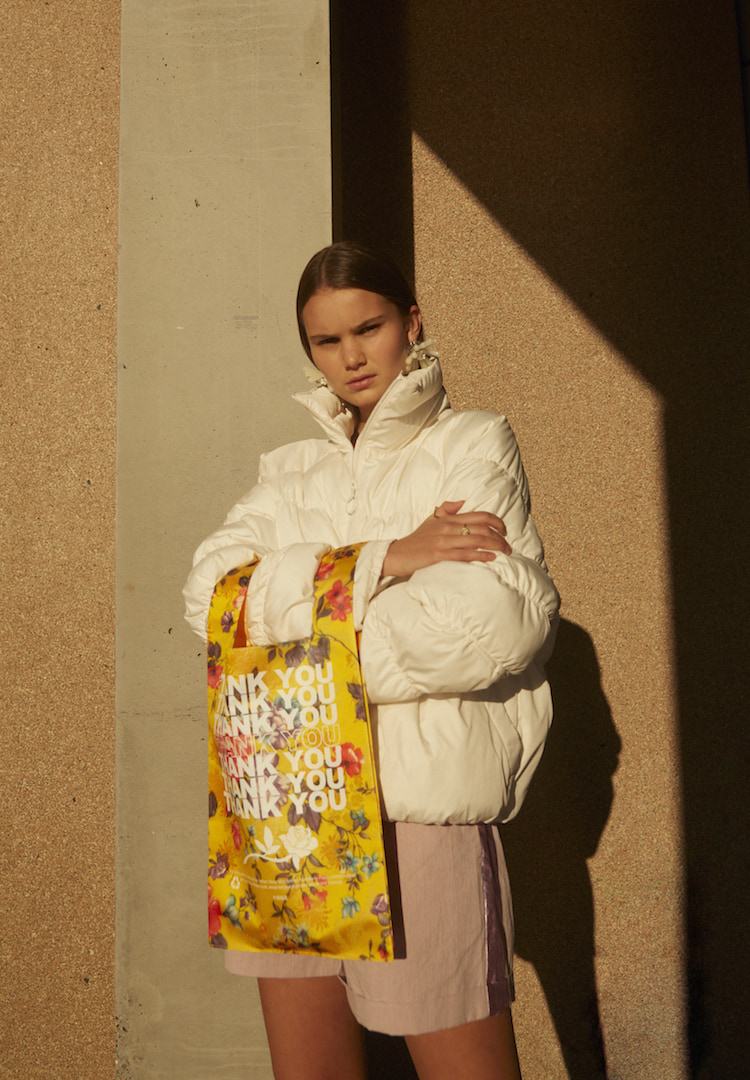Country Road Group’s Chief Sustainability Officer on why she wants to do herself out of a job
Words by Sally Edwards
The mission to make sustainability business as usual.
After two decades in customer engagement and sustainability and a trip to the UK where she doorknocked and interned her way into learning about ethical fashion from the best of ’em, Eloise Bishop is now the Head of Sustainability at two of Aussie retail’s biggest players: Country Road Group and David Jones.
It’s a pretty important gig that involves, among many things, overseeing the Good Business Journey programs at both companies and contributing to broader conversations, particularly with the Australian Fashion Council, to encourage the fashion industry to adopt more sustainable practices all round. So, why does she want to make her role obsolete?
“My ultimate goal would be to do myself out of a job. As much as my team and I work to identify new [sustainability] issues that need to be understood and adapted to, we very much work to integrate those throughout the business so that they become business as usual. It’s really about trying to transform the business to become more sustainable overall.”
And she’s definitely on track to the business as usual goal. Since her appointment as their CSO, both David Jones and Country Road Group have made considerable achievements in their journeys to sustainability.
“There’s a lot of opportunity for us to be a leader in this space. We still have a huge amount of work ahead of us but it’s something the business would like to see. Particularly with Country Road we’ve been able to show some leadership around important initiatives,” says Eloise.
In August last year, Country Road became the first fashion retailer to have a 5 Star Green Star rated store with the opening of its Chadstone location and it now serves as the template for all new stores going forward. Its development came after the 2015 launch of the brand’s 5 Star Green Star-rated Omni Fulfilment Centre which boasts natural lighting, solar panels and rainwater harvesting – an industrial first-of-its-kind for Victoria.
Fashion’s long history of animal rights offences aren’t lost on Eloise either. In response to revelations highlighted by PETA in 2013, Country Road Group banned angora the following year. While more recently, it was one of the first retailers to make a call on phasing out mulesed wool and will be eliminating it from its collections by 2025.
“In terms of transparency and having traceability of our supply chain, we need to ensure that our practices are ethical,” Eloise tells me.“We’re currently going through the process of reporting for the Modern Slavery Act, so there are some really serious issues that we need to consider within our own footprint and how we’re addressing those, whether it relates to human rights or our impact on climate change. For us, it makes good business sense to be doing this for risk management but also for leadership.”
As her employers have become more focused on sustainability all round, Eloise is now inspired to “embed and create ownership of the work” throughout the businesses.
“Particularly when you see a brand like Country Road under the leadership of Elle Roseby [Managing Director at Country Road],” she explains. “They are really driving some meaningful change and we support them but ultimately, they’re driving it, and that has now helped shape their culture and brand. That’s the kind of achievement that I like to see. Where the business itself sees that there’s so much value in doing this that they are just driving their own agenda.”
An overwhelming part of what Eloise aims to make “business as usual”, though, is Australia’s and Australian fashion’s reconciliation with First Nations People. In 2019, Country Road began collaborating with an Indigenous-led social change agency, Cox Inall Ridgeway, to develop an approach to initiating and maintaining relationships with First Nations artists and communities.
While over at David Jones, the company has had a reconciliation action plan (RAP) in place since 2018. The plan outlines its commitment to promoting respectful relationships between Indigenous and non-Indigenous Australians and creating opportunities for First Nations people and businesses. And according to Eloise, Country Road Group is committed to developing a RAP too but when it will be in place is undetermined.
“It’s a really important milestone. We’ve done work internally around cultural awareness training and we’ve developed guidelines for how our design and production teams work with Aboriginal artists. But, we really need to reflect and understand, as a business, how we develop and strengthen our relationships with Aboriginal and Torres Strait Islander people and how we prepare ourselves to take greater steps toward reconciliation.”
The Australian fashion industry has at last taken some first steps to reconciliation and celebrating First Nations’ culture which truly holds the brush of Australian art. Along the way, Country Road has forged a significant collaboration with the Darwin Aboriginal Art Fair Foundation (DAAF) and has signed on to be a presenting partner at its inaugural National Indigenous Fashion Awards (NIFAs), held this Wednesday August 8 (check out the nominees here).
So, how did the partnership come about?
“Last year myself and Sigrid McCarthy [Sustainable Product Specialist at Country Road Group and David Jones] went to the Darwin Aboriginal Art Fair and it was a really big eye-opener for me particularly. The more I learn about Aboriginal culture and heritage the more I realise how much I don’t know. We came back from that experience and reflected on the work that Country Road, in particular, was doing in evolving its community partnerships,” Eloise tells me.
“The partnership that we formed with the Darwin Aboriginal Art Fair Foundation now provides us with a partner who can help guide us through part of the journey [to reconciliation]. And, where it’s relevant for us as a fashion and textiles business, we’re able to support designers in their pathways and build capacity for [them] in the fashion sector, particularly through the mentoring aspect of the Fashion Award winner.”
It is this work toward reconciliation that Eloise notes as her proudest achievement. “It’s been a long time coming but it’s really important work. It is just the beginning, but it’s a really good start.”
And her hopes for the future relationship between the fashion industry and First Nations People?
“For us as a business, it’s a really good opportunity to learn more about some of the ways these artists work with the land and the storytelling that can come out of the artworks, whether it’s fashion or textiles or weaving. But I think we, as a country, have a lot to learn about the culture itself and how much there is to celebrate. Even from the way Indigenous people have managed the land and cared for the land. It gives us an opportunity to pause and reflect. We’ve got a lot of relearning we need to do about Aboriginal culture and I feel like we’re only just at the beginning,”
“And if Country Road [and David Jones] can help encourage people to learn more about this rich heritage, then I think that it’s really important that we do.”

